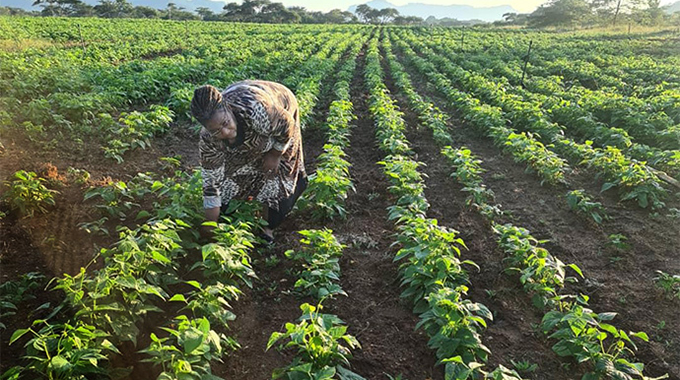Market-driven extension key for agri-business growth

Elton Manguwo
WITH the agriculture industry experiencing robust growth and transformation driven by Government programmes, actors in the industry are calling for market-driven extension services to influence production.
Knowledge Transfer Africa Zimbabwe chief executive officer Dr Charles Dhewa recently observed that as the country transitioned towards rural industrialisation backed by cost-effective agricultural production, market driven extension was key in ensuring that everything that farmers produce is influenced by market demand.
“We need to focus on production outputs as they influence value addition, profiteering, production continuity and more importantly policy formulation,” said Dr Dhewa.
Market driven extension can be created by equipping small-scale farmers with market intelligence and data for them to strike a balance between produce volumes and market uptake.
Dr Dhewa highlighted that the country’s extension services were very good but did not listen to markets and what happened after food is produced.
Knowledge Transfer Africa Zimbabwe is a smart agri-tech company that monitors and captures market data in the country’s key markets.
Market data can assist in creation of production zones according to agro ecological conditions in the wake of climate change.
“Collected data can be used to advise farmers on specific crops to produce rather than directionless production,” said Dr Dhewa.
The Ministry of Lands, Agriculture, Fisheries, Water and Rural Development is mainstreaming the notion of market driven agriculture at the heart of all agriculture processes through vigorous market surveys so that farmers can develop an appetite to produce that which is not available.
“As the Government is calling for business practices in farming, availing market data that can support in building business models around food production by ensuring that farmers produce according to demand,” said Dr Dhewa.
Moreover, market intelligence is key in ensuring that what is produced is tracked to the point at which it is consumed, which can assist in food security forecast.
“Without tracking food movements, it can be difficult to determine food security for different areas in the country,” said Dr Dhewa.
Furthermore, 60 percent of the country’s population produces agricultural commodities at a time the sector is experiencing growth therefore increasing food loses.
“We need to match production with demand for a dependable market offtake” said Dr Dhewa highlighting how linkages between farmers and the market created a market feedback, which is critical in regulating production therefore minimising post-harvest losses.
Post-harvest losses discourage small-scale farmers from non peri-urban areas from venturing into intensive commercial perishable crops production.
“We have to think critically about the demand base and then set up aggregation centres where commodities can be stored in production zones while looking for big markets that support the demand while balancing high yields and the market,” said Mr Dhewa.









Comments